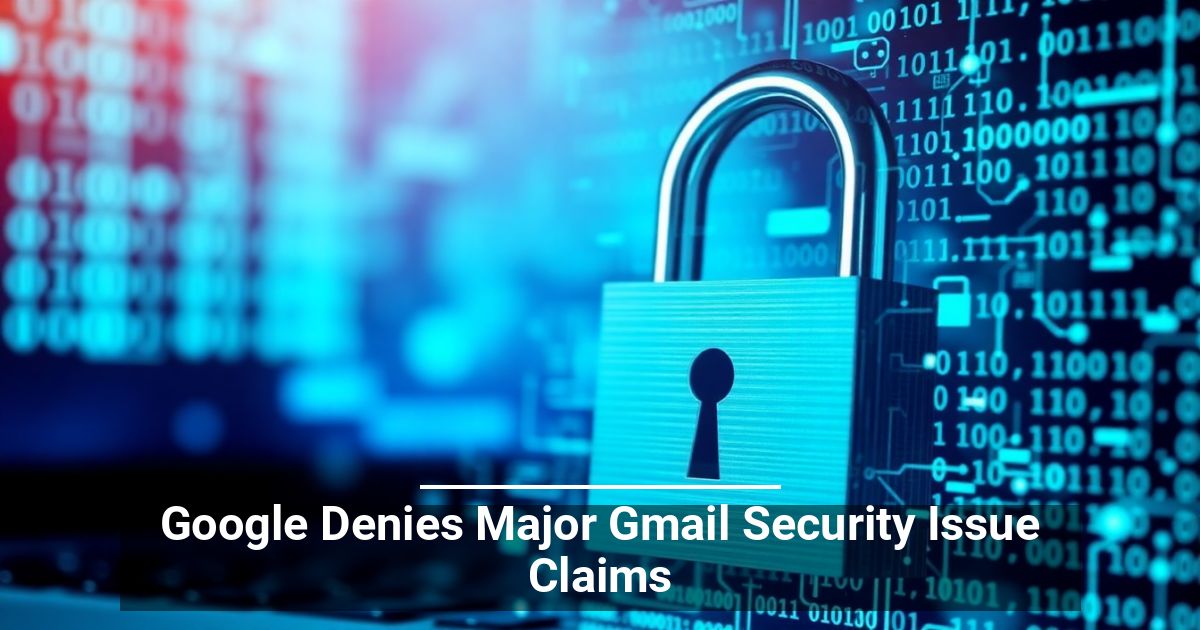 How much do you trust your email provider? Gmail is often the go-to choice for establishments across the globe, but recent concerns about a security vulnerability have sparked discussions about its reliability. Learn more about the Gmail security issue here.
How much do you trust your email provider? Gmail is often the go-to choice for establishments across the globe, but recent concerns about a security vulnerability have sparked discussions about its reliability. Learn more about the Gmail security issue here.
How Safe Is Your Gmail Account?
The workflow platform Salesloft experienced a cyberattack recently, in which threat actors broke in through a third-party and stole sensitive information. Google quickly warned that some connected Workspace accounts and Salesforce instances may have been compromised because of this breach.
Unfortunately, some news outlets misinterpreted this statement as "Gmail is fully compromised," but the company stresses that this is not the case. You should be able to continue using your accounts without much concern.
Should Workspace and Salesforce Users Worry?
According to Google, only "a very small number" of Salesloft-integrated Google Workspace accounts were affected. The attack compromised OAuth tokens (a type of secure access key) to gain unauthorized entry, but Google quickly revoked them, disabled integration functionality, and alerted potentially impacted users. If you didn't receive any notifications, it's safe to assume your account is fine.
The Salesforce breach was also relatively minor. The information retrieved by the threat actor only comprised basic, publicly available business information, such as contact details and company names. Google's Threat Intelligence Group cut off access and notified all who were directly affected.
Securing Your Gmail Account
While the recent Gmail security issue was mostly overblown, digital threats are becoming commonplace. Google reported heightened pressure on two fronts: cookie and authentication token theft, as well as phishing and credential theft.
It never hurts to review your existing cybersecurity protocols and make necessary updates. Some ways you can bolster Gmail account protection include:
- Updating passwords regularly: You should create new, unique codes for your account every so often. A password manager tool can do this automatically for convenience.
- Using Google Passkey: Passkeys are essentially a modern, passwordless login method that only works for a specific device or system. They come in the form of fingerprints, face identification, screen locks, or security keys to verify your identity.
- Enabling two-factor authentication (2FA): 2FA makes you verify your identity through a second method, like a text code or an app notification. When criminals manage to steal your user credentials, another layer of protection would render their attempts useless.
- Fostering a culture of vigilance: Phishing is a cybersecurity threat that needs careless or poorly informed users to succeed. Train your team to notice and report suspicious emails asking for private information or containing unverified links and attachments.
- Informing Google of every cybersecurity threat: If you received an email that seems suspicious, report it to Google by selecting the "More" option and clicking "Report phishing."
Prioritizing Email Security in the Modern Workplace
The latest Gmail security issue shows that even platforms protected by industry giants are not immune to cyber threats. If you want to safeguard your business from a potential data breach, start taking a proactive approach today. Many improvements are accessible and simple to implement, even for companies with limited resources.



